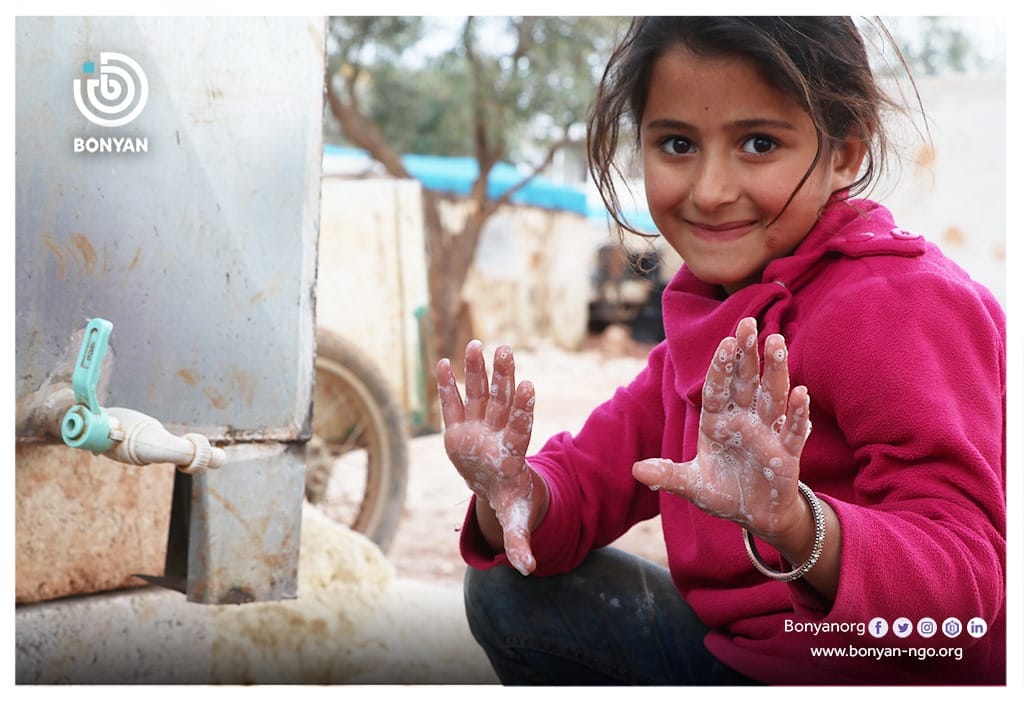Poor sanitation and hygiene in refugee settings can lead to the spread of many diseases.
Still, millions of refugees are suffering from a lack of access to WASH services, which puts them at risk of contracting multiple infections.
Insufficient sources of safe water mean that many refugees can lose their lives due to their consumption of contaminated water.
This article highlights the challenges that hinder refugees’ access to WASH services, as well as potential solutions o such a problem.
The Importance of Sanitation in Preventing the Spread of Diseases in Humanitarian Emergencies
There is a paramount role for sanitation in preventing the spread of disease in conflict-stricken areas and humanitarian emergencies.
There is no doubt that poor sanitation practices lead to an increase in water-borne and food-borne diseases.
Most importantly, poor sanitation leads to the transmission of diarrhoeal diseases such as cholera and dysentery.
Since it reduces the risk of infection, prevents the spread of diseases, and improves hygiene, applying sanitary techniques plays a significant role in maintaining overall health.
Indeed, sanitation can help disinfect surfaces, which reduces the number of germs and decreases the risk of infections in refugee settings.
Innovations in Emergency Sanitation: Solutions for Short-term and Long-term Needs
Innovations in WASH technologies can provide new and improved water, sanitation, and hygiene short-term and long-term solutions in refugee and humanitarian emergency settings.
The short-term solutions include:
- Automated handwash stations: These stations are crucial for maintaining an easy and accessible way for sanitation for refugees, which helps reduce the spread of diseases in humanitarian emergencies.
- Mobile water purification systems: These systems can provide clean drinking water in refugee camps.
- Sanitation tracking systems: Such stems help track settings in refugee camps that need sanitation interventions.
The long-term solutions include:
- Solar-powered sanitation systems: These systems can help provide sustainable sanitary solutions for refugees.
- Greywater recycling systems: These systems can provide effective, inexpensive ways to recycle wastewater in refugee camps.
- Smart toilets: These toilets serve as an efficient, hygienic way to manage waste in refugee communities.
Hygiene Promotion and Behavior Change in Humanitarian Crises
Civil society organizations work on hygiene promotion and behavior change in humanitarian situations and refugee camps.
This refers to their efforts to improve the health and well-being of refugees by raising awareness in such settings to encourage them to adopt healthier hygienic practices and sanitation techniques.
Such efforts and activities include distributing soap, promoting hand-washing, teaching proper disposal of human waste, and encouraging the use of clean drinking water.
Hygiene promotion involves raising awareness of the significant role that good hygiene and sanitation practices play in refugee settings.
It also involves providing refugees with the resources and services necessary to practice a sustainable hygiene routine.
In addition, spreading behavior change among refugees refers to advocating for the importance of good sanitary activities in order for them to become more self-sufficient in maintaining such practices.

Challenges and Solutions for Providing Sanitation in Refugee Camps
Refugees face many challenges that hamper their access to WASH services.
For example, latrines are shared between families in refugee communities, which increases the risk of cholera outbreaks.
In addition, 30 % of refugee settings lack waste disposal facilities.
Other obstacles that face refugees’ access to sanitation include limited funding.
Installation of WASH services in refugee camps is often funded by international organizations, which can be limited.
Solutions to the sanitation problem in refugee camps include increasing funding of WASH services in order to improve sanitation and hygiene among refugees.
Bonyan Organization constantly works on addressing refugee needs for WASH services by organizing the necessary campaigns to fundraise for WASH projects and advocate for their rights to access such services.
Millions of Syrian refugees suffer from acute shortages in water supply due to the lack of water facilities in such refugee settings.
Support our “Provide Clean Water to Syrian Camps” campaign and help build wells in Syrian refugee communities to cover their needs for cooking and drinking water as well as sanitation and hygiene needs.
Donate at the link below today:
Resources
- Interventions to improve sanitation for preventing diarrhoea.
- Water and Sanitation Standards in Humanitarian Action.
- Water Sanitation and Health.
FAQs
What are some interventions for sanitation and hygiene?
Some sanitation and hygiene interventions include:
-Efforts to reduce open defecation by installing constrained latrines and toilets.
-Raising awareness of the importance of hygiene and sanitation.
-Educating the affected populations about sanitary practices.
How to improve sanitation and hygiene in developing countries?
We can improve sanitation and hygiene in developing countries through the following:
Increasing access to clean water and sanitation facilities.
Improving health and hygiene education.
Investing in WASH infrastructure.
Promoting behavior change.
How can we prevent poor hygiene and sanitation?
We can prevent poor hygiene and sanitation by disinfecting surfaces and wearing protective masks and gloves.
What is the importance of sanitation and hygiene?
Sanitation and hygiene practices are important because they can prevent the transmission of multiple diseases, such as diarrhoeal diseases such as cholera, and dysentery.
Content
- The Importance of Sanitation in Preventing the Spread of Diseases in Humanitarian Emergencies
- Innovations in Emergency Sanitation: Solutions for Short-term and Long-term Needs
- Hygiene Promotion and Behavior Change in Humanitarian Crises
- Challenges and Solutions for Providing Sanitation in Refugee Camps
- Resources
- FAQs



